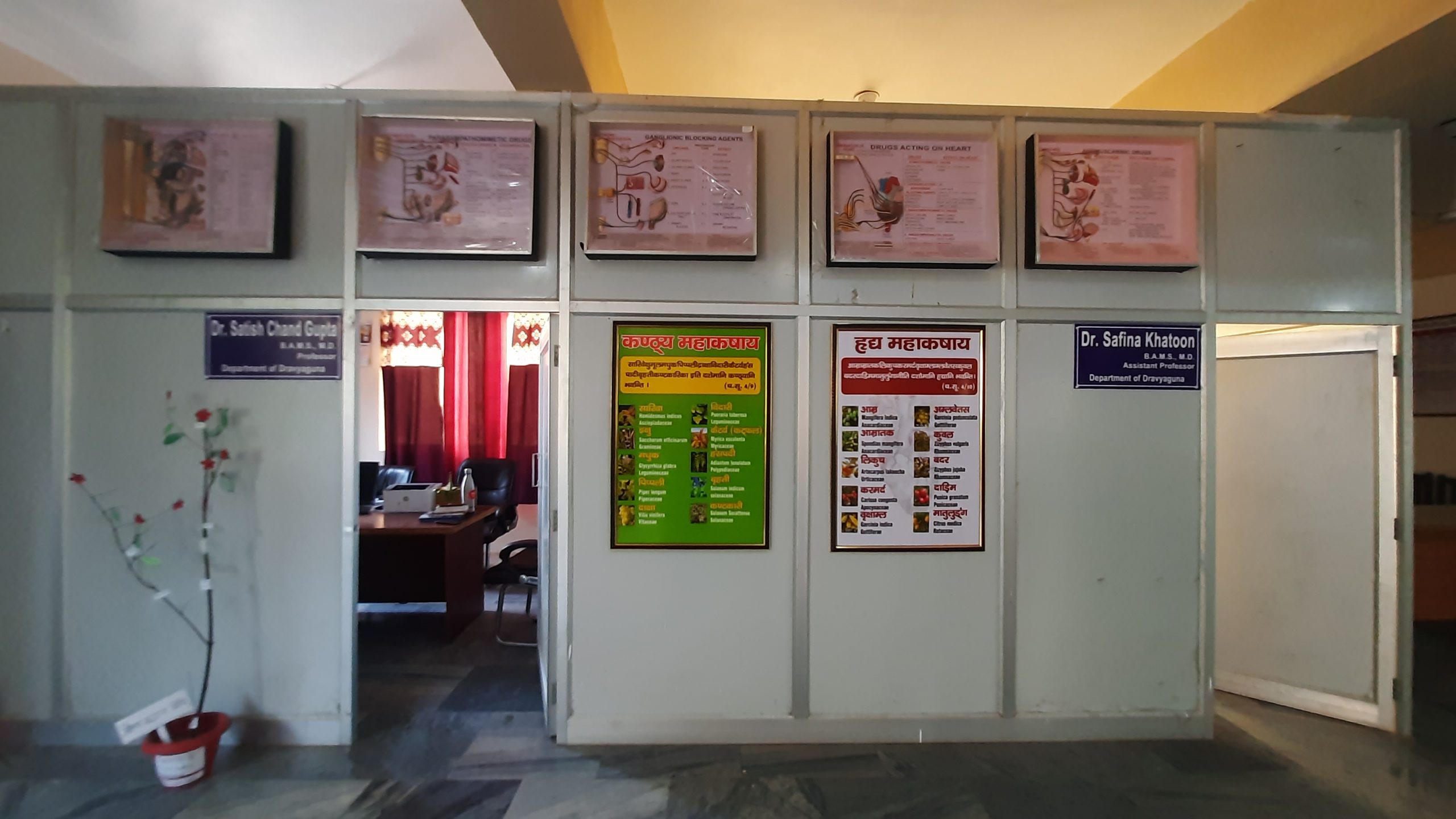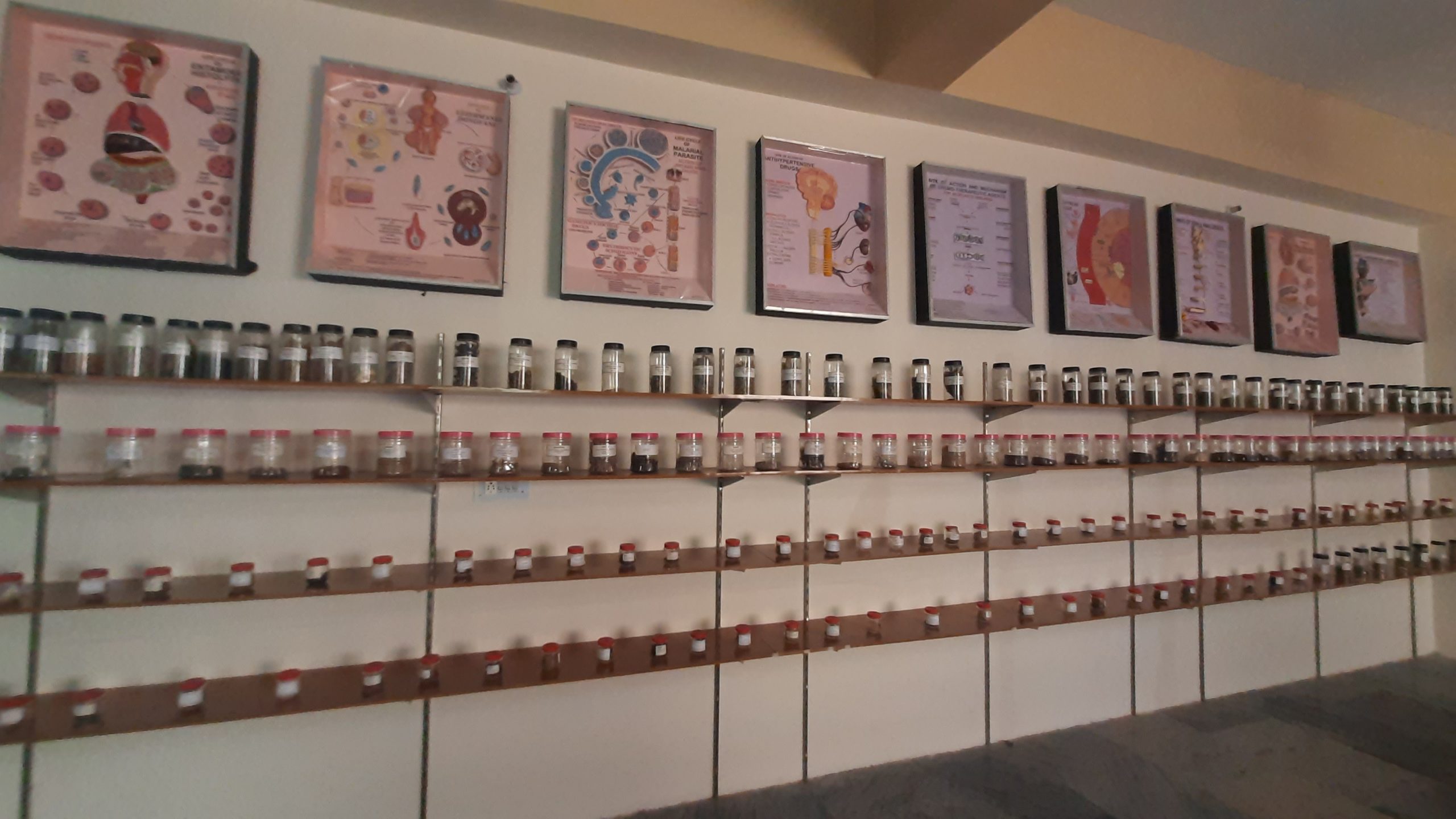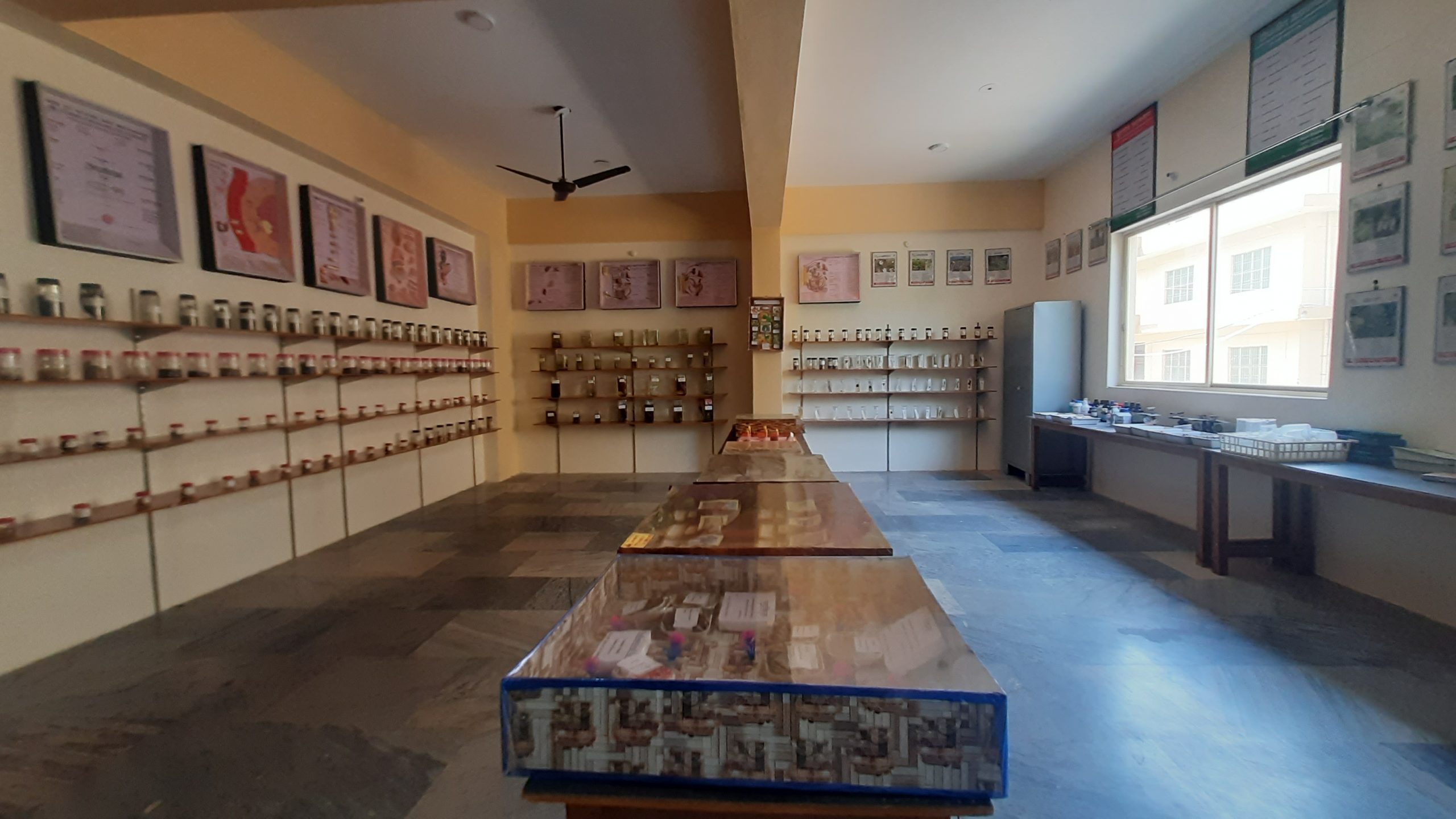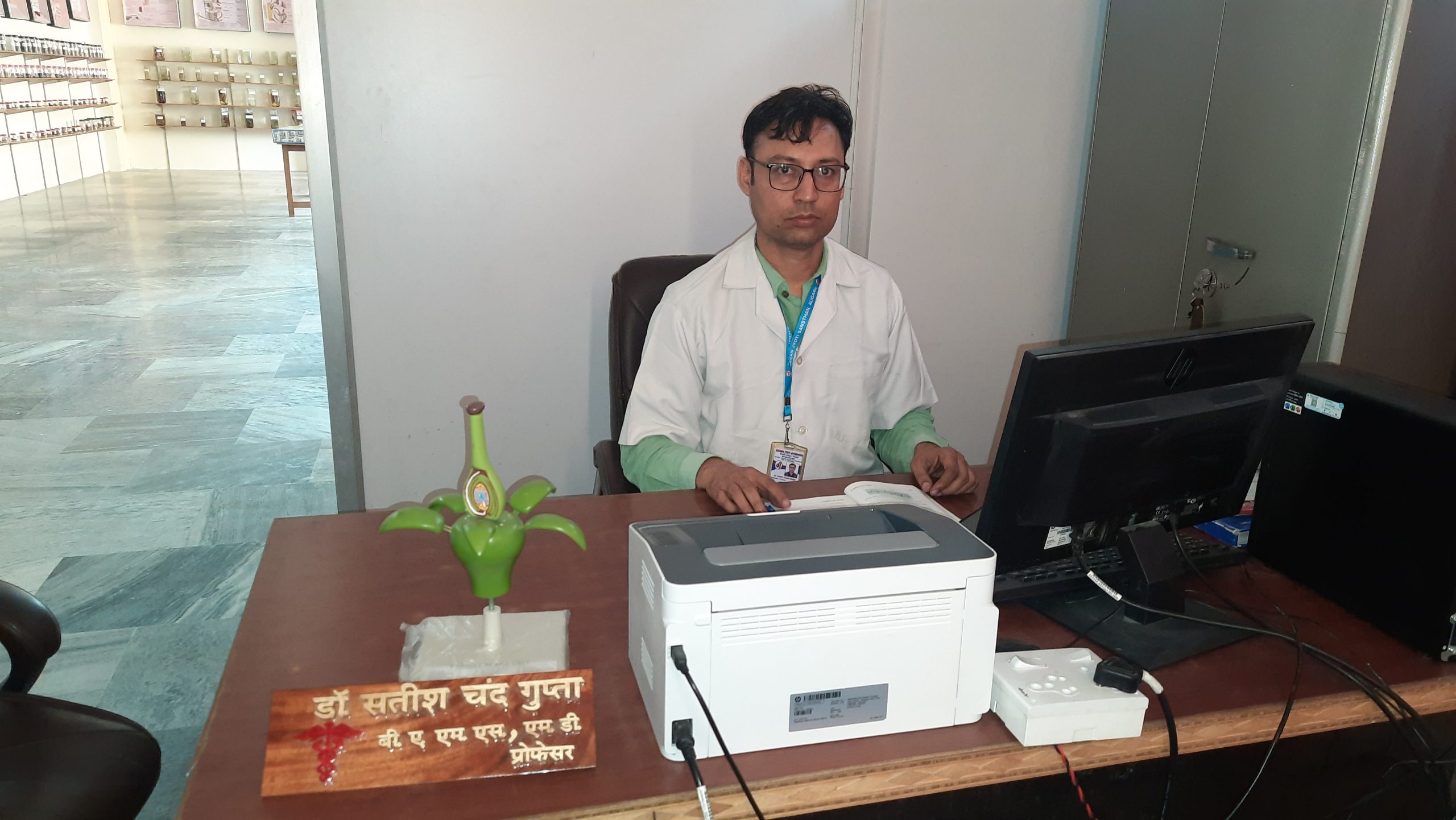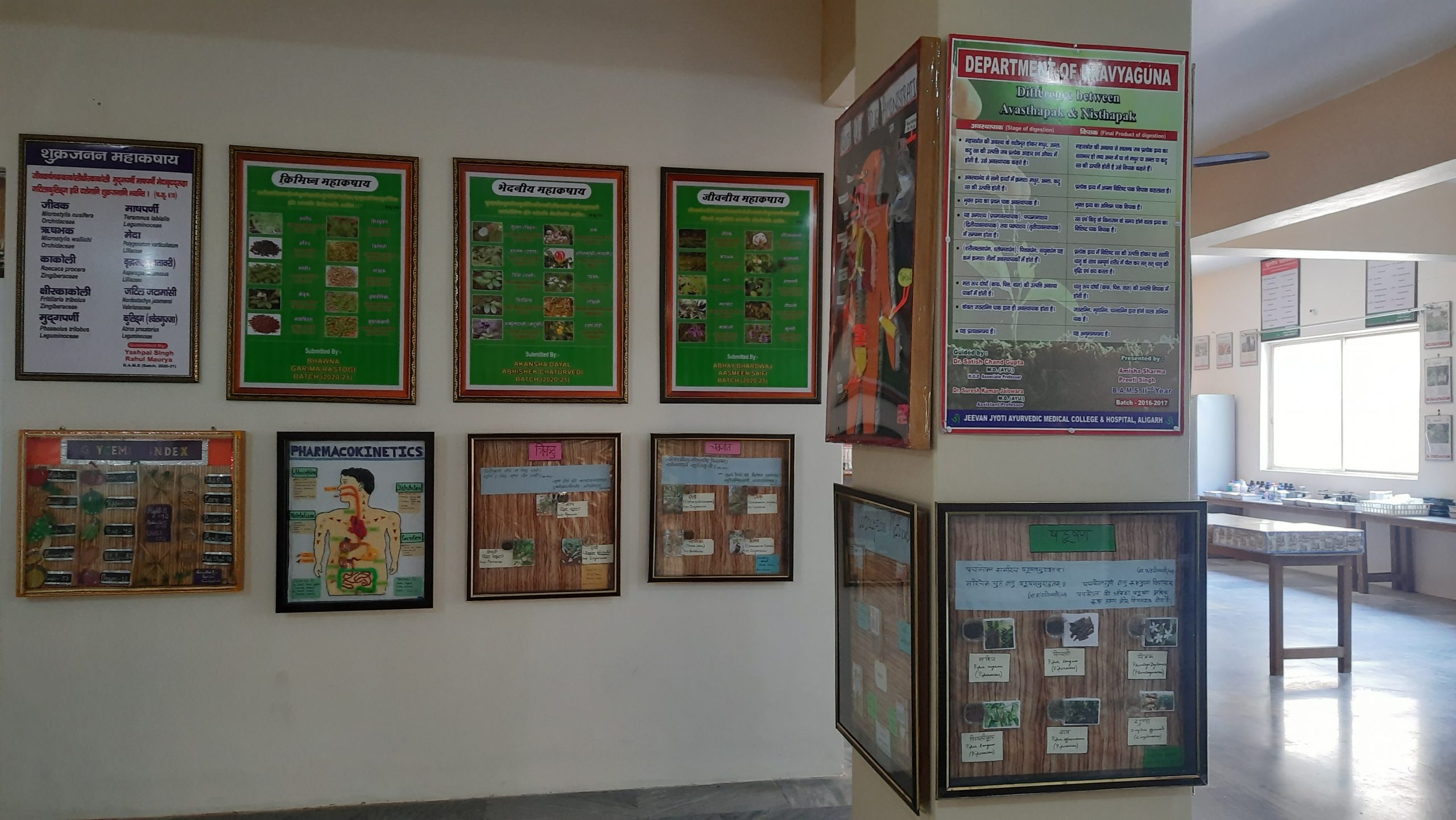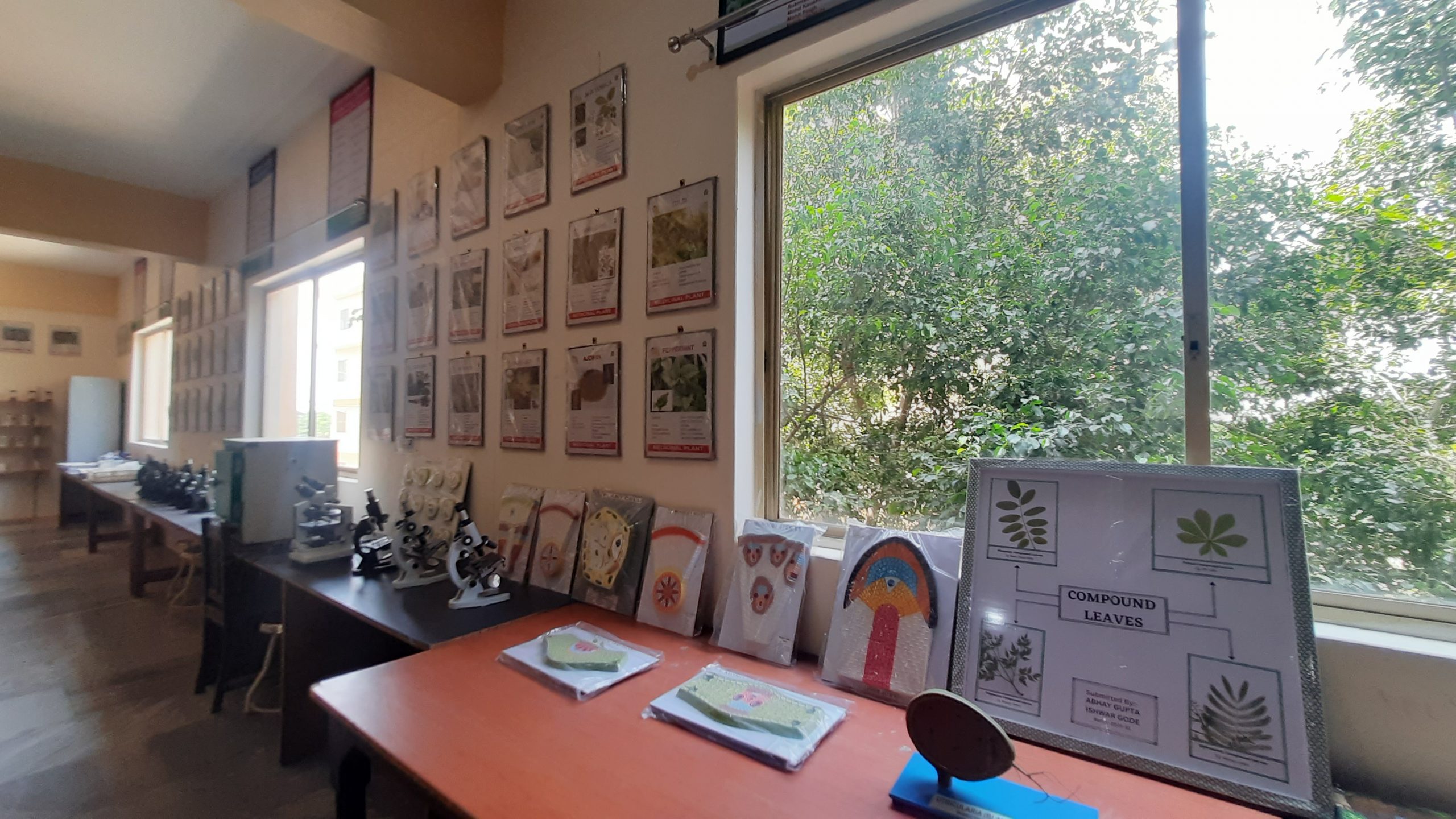DEPARTMENTAL PROFILE:
अनेनोपदेशेन नानौषिधभूतं जगत िकिǠद्ūʩमुपलɷतेतां तां यु̚ततमथōतंतमभŮेȑ||१२||
[Charak Sutrasthan 26/12]
According to Acharya Charaka there is nothing on the earth which is not medicine. That’s why Ayurveda considers all substances as medicine, if used for specific purposes in an appropriate way.
Introduction
The Department of Dravyaguna at SBSJSAMCH is dedicated to the study and application of Ayurveda as a science that explores life and its interactions with matter. The department primarily focuses on the properties and actions of medicinal plants and substances (Dravyas) on the human body. Dravyaguna Vijnanam, or Clinical Pharmacology, plays a vital role in understanding how Ayurvedic drugs work therapeutically, through the study of pharmacokinetics (Gunakarma Vijnan) and pharmacodynamics.
This department not only covers the scientific analysis of Ayurveda’s drug formulations but also emphasizes the ecological aspect of plant conservation, herb cultivation, and the promotion of nature conservation. The department’s efforts to educate the public about sustainable use of herbs, kitchen pharmacy, and home remedies are instrumental in fostering a deeper understanding of Ayurveda’s practical application in daily life.
The curriculum of Dravyaguna integrates several sub-fields such as Namarupa Vijnan (Pharmacognosy), Yoga Vijnan (Formulary), Kalpana Vijnan (Pharmaceutics), and Prayogavijnan (Pharmacotherapeutics), providing students with a comprehensive view of Ayurvedic drug science and clinical applications. With a strong emphasis on research and ecological responsibility, the department also leads efforts in plant conservation, herb cultivation, and environmental sustainability.
Vision
The vision of the Department of Dravyaguna is to advance the understanding of Ayurvedic pharmacology, bridging ancient wisdom with modern scientific approaches. The department envisions a world where Ayurvedic medicines are used in harmony with nature, preserving the ecological balance and promoting holistic health. We aim to create a sustainable and ecologically responsible approach to herbal medicine that empowers individuals and communities to make informed choices for their health.
Our vision includes creating awareness about the therapeutic potential of Ayurvedic plants, their sustainable cultivation, and encouraging a broader understanding of Ayurveda’s contributions to modern pharmacology. Through research, education, and outreach, we strive to build a global recognition of Ayurveda as a scientifically sound and eco-friendly system of medicine.
Mission
The mission of the Department of Dravyaguna is to educate students and the community about the therapeutic uses, actions, and properties of Ayurvedic drugs while fostering a responsible approach to nature conservation. Our mission includes:
In-depth Study of Dravyaguna: Providing a comprehensive understanding of the properties (Gunas) and actions (Karmas) of medicinal substances, and their interactions with the human body in both health and disease.
Promoting Sustainable Use of Herbal Medicine: Encouraging the sustainable use of Ayurvedic herbs, focusing on cultivation, preservation, and conservation of medicinal plants for both local and global benefit.
Pharmacological Education: Delivering education on the clinical pharmacology of Ayurvedic drugs, covering key areas such as pharmacognosy (Namarupa Vijnan), pharmaceutics (Kalpana Vijnan), pharmacodynamics (Gunakarma Vijnan), and pharmacotherapeutics (Prayogavijnan).
Community Engagement: Raising awareness about Ayurveda’s practical applications, including kitchen pharmacy, home remedies, and the cultivation of medicinal plants. We work to empower the public, especially school and college students, with the knowledge of Ayurvedic practices that promote wellness.
Ecological Awareness: Promoting environmental sustainability through the conservation, multiplication, and preservation of medicinal plants, and encouraging local communities and farmers to cultivate Ayurvedic herbs (Vocal for Local).
Research and Innovation: Conducting research in the field of Ayurvedic pharmacology and ecology, particularly focused on the therapeutic potential of herbs and their contribution to modern medicine.
Department Overview
The Department of Dravyaguna combines the study of Ayurvedic pharmacology with a focus on ecological responsibility. It aims to create a solid understanding of the therapeutic properties and actions of various plants and substances used in Ayurveda, equipping students with the necessary knowledge to practice and promote Ayurveda in a modern context.
Key Areas of Study:
- Dravyaguna Vijnanam (Clinical Pharmacology): The study of Ayurvedic drugs and their therapeutic effects on the human body, including their properties (Gunas), actions (Karmas), and uses in treating various diseases.
- Namarupa Vijnan (Pharmacognosy): The study of plant-based medicines, including identification, classification, and analysis of the properties of medicinal plants.
- Gunakarma Vijnan (Pharmacokinetics and Pharmacodynamics): The study of how Ayurvedic drugs are absorbed, metabolized, and interact with the body’s systems.
- Kalpana Vijnan (Pharmaceutics): The preparation, formulation, and quality control of Ayurvedic medicines.
- Prayogavijnan (Pharmacotherapeutics): The clinical application and therapeutic use of Ayurvedic medicines in various disease conditions.
Infrastructure & Facilities
- Museum Collection: The department maintains a well-organized museum with rare dry specimens, herbarium collections, and various herbal drugs for practical learning and reference.
- Herbarium and Laboratory: A dedicated space for the study and identification of medicinal plants, supported by advanced laboratory facilities for pharmacological analysis.
- Herbal Garden: The department manages a diverse herbal garden with numerous species of medicinal plants, offering hands-on experience in plant identification, cultivation, and conservation.
- Educational Materials: The department is equipped with a comprehensive library, including Ayurvedic and contemporary pharmacological texts, charts, and models for effective teaching and learning.
Academic Activities
- Classroom Learning: Students receive theoretical and practical training in Ayurvedic pharmacology, with a focus on the therapeutic properties of medicinal plants and their clinical applications.
- Workshops & Seminars: The department regularly organizes workshops, seminars, and guest lectures to enhance students’ knowledge and keep them updated on advancements in Ayurvedic pharmacology and sustainable practices.
- Public Awareness Programs: Conducting programs to educate the public, including school and college children, about common Ayurvedic herbs, their therapeutic uses, and how to make simple remedies at home using kitchen pharmacy.
- Agri-Extension Activities: Motivating local farmers to cultivate Ayurvedic herbs and engage in sustainable farming practices, aligned with the “Vocal for Local” initiative.
Social Responsibility
The Department of Dravyaguna plays an active role in raising public awareness about Ayurveda’s practical applications. Through community outreach programs, workshops, and agricultural initiatives, the department contributes to improving public health and promoting environmental sustainability.
Through education, research, and community involvement, the Department of Dravyaguna is working towards a healthier, more ecologically responsible world, where the benefits of Ayurvedic pharmacology are accessible and understood by all.
